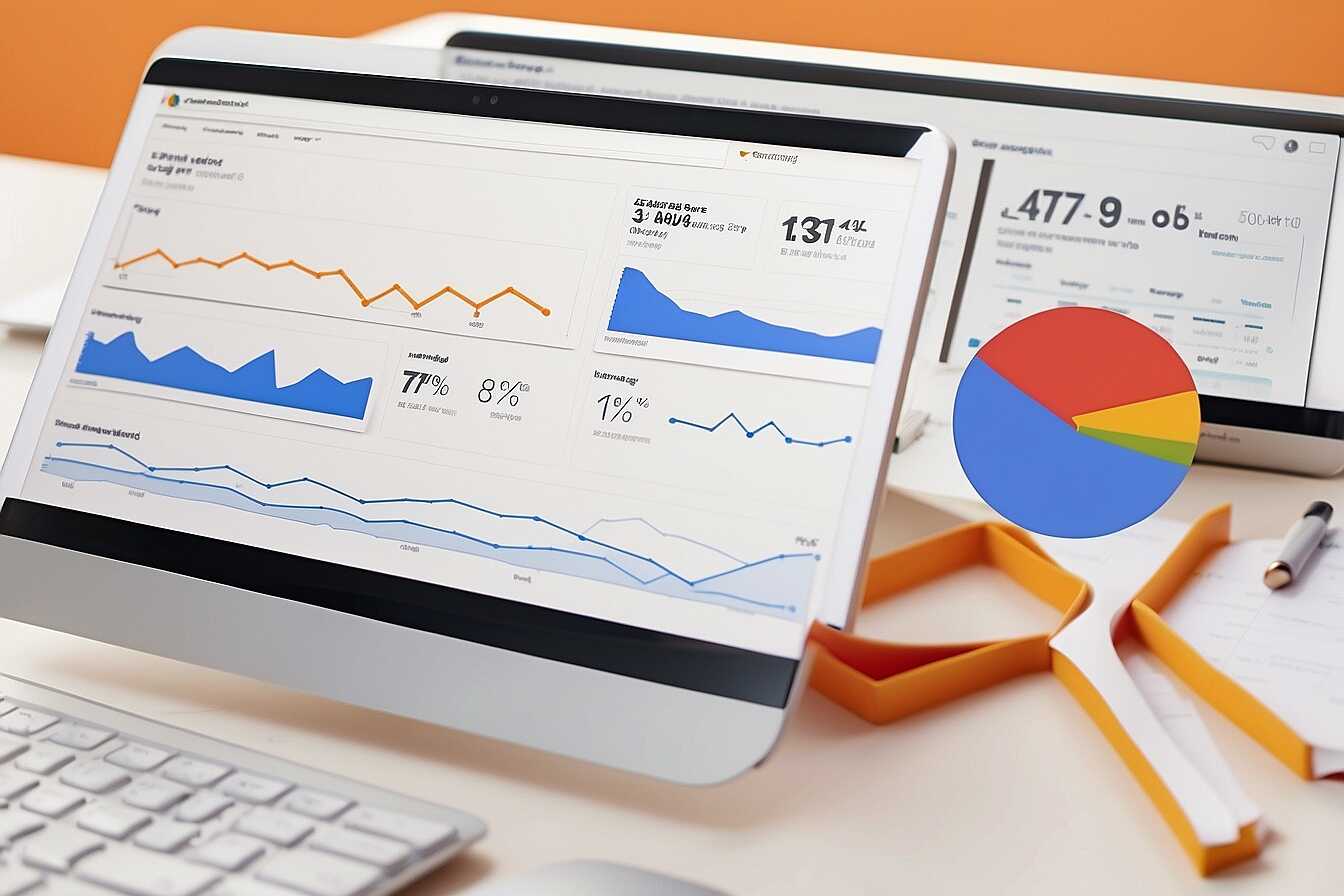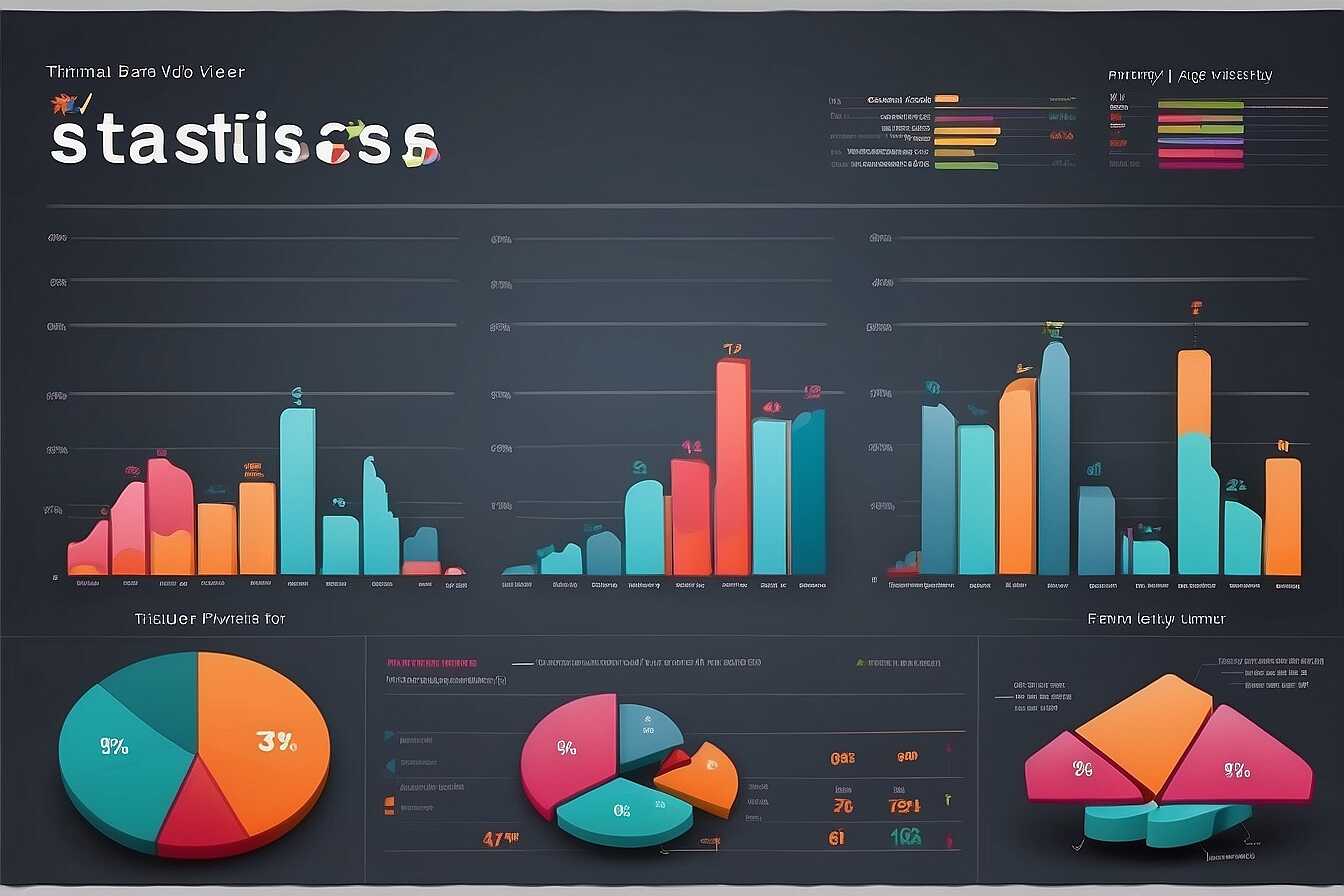Understanding comprehensive metrics for tracking keyword performance goes beyond just monitoring search rankings. To effectively refine your SEO strategies and boost conversion rates, you must explore various other performance indicators. Metrics Rule, based in Vancouver, emphasizes using a wider range of data to achieve this goal. By analyzing not only rankings but also user engagement and conversion metrics, SEO analysts can optimize their strategies for better results.
Essential Metrics for Tracking Keyword Performance
Key metrics for tracking keyword performance go beyond rankings. You should focus on keyword effectiveness, conversion rates, organic traffic, and user engagement. Each of these metrics plays a vital role in assessing keyword success. Understanding these factors ensures you enhance your SEO strategy effectively. Prioritizing two to five essential metrics can provide better insights and help you track progress accurately.
Understanding Keyword Effectiveness and Its Impact
Keyword effectiveness measures how well a keyword converts visitors into customers. To track this, analyze metrics like conversion rates, click-through rates, and bounce rates. If a keyword drives significant organic traffic but has a low conversion rate, this indicates a gap in user intent or content alignment. Focus on improving landing pages for those keywords, ensuring they meet user expectations. This analysis enhances overall user engagement, leading to better SEO results and higher conversion rates for your e-commerce endeavors.
Understanding User Engagement Metrics in SEO
User engagement metrics are essential for assessing your SEO performance. These include click-through rate (CTR), dwell time, and bounce rate. A higher CTR means users find your keywords and titles compelling enough to click. Dwell time indicates how long visitors remain on your page, reflecting content relevance. A low bounce rate suggests that users find what they need on your site, showing effective keyword strategy and content alignment. Together, these metrics provide insight into user behavior and help refine your keyword and content strategy for better search engine performance.
Improving Click-Through Rate for E-commerce Success
To improve your click-through rate (CTR) for e-commerce, focus on optimizing your meta titles and descriptions. These elements should be engaging and include relevant keywords that resonate with your target audience. For example, using action-oriented phrases like “Shop Now” or “Discover Exclusive Deals” can enhance user appeal. Additionally, A/B testing different title formats helps identify which phrases lead to the highest CTR. According to studies, a good CTR for e-commerce websites in 2023 is around 2-5%. Regularly analyze user engagement metrics to continuously optimize and enhance your content’s performance on search engines.

Evaluating Conversion Rates Linked to Targeted Keywords
To evaluate conversion rates linked to targeted keywords, businesses should utilize analytics tools to track user behavior. Google Analytics, for example, provides in-depth insights into how visitors interact with keyword-driven traffic. This data enables a comprehensive comparison of the performance of different keywords. Understanding which specific keywords drive conversions is essential for refining their SEO strategies and improving the conversion metrics evaluation process. Integration of this data into regular keyword research assists in highlighting areas for improvement, thus ensuring that conversions are not only generated but also optimized for higher profitability.
Utilizing Analytics Tools for Conversion Tracking
By integrating analytics tools effectively, businesses can gain deeper insights into keyword performance and targeted keyword analysis. For instance, Google Analytics can track individual user sessions, helping analyze which keywords lead to purchases and how often. Testing different keyword strategies can reveal which ones provide the best conversion rates. E-commerce professionals must focus on these tools to enhance their understanding of conversion metrics. With this expert approach, they can isolate keywords that enhance sales, improve their online visibility, and ultimately boost their return on investment.
Statistical Insights for Effective Keyword Analysis
- Over 70% of users ignore paid ads and focus on organic results.
- About 50% of all search queries consist of four or more words.
- The average first-page Google result contains 1,890 words.
- Studies show that 61% of marketers say improving SEO and growing organic presence is their top priority.
- Websites that load within two seconds can see a conversion rate increase of up to 50%.
- Content with targeted keywords receives 3.5 times more traffic than less optimized content.
- Companies that blog receive 97% more links to their websites.

Leveraging SERP Features for Enhanced Keyword Insights
Understanding SERP features such as featured snippets and local packs is crucial for tracking keyword performance. Featured snippets can enhance visibility by displaying your content prominently at the top of search results. Local packs provide critical data about how your business ranks in local searches, helping improve keyword performance for location-based queries. By analyzing these features, you can refine your SEO strategies to boost overall visibility and conversion rates.
Improving Visibility with Featured Snippets
Featured snippets highlight the most relevant answers to user queries, making them an essential part of your SEO strategy. To improve your chances of capturing these snippets, focus on creating concise and direct answers to common questions related to your target keywords. Ensure your content is well-structured using headers and bullet points, which enhances reliability for search engines. In fact, studies indicate that capturing a featured snippet can increase click-through rates by over 30%, significantly enhancing your site’s visibility. For e-commerce sites, optimizing product descriptions and FAQs for featured snippets can drive more organic traffic, enabling better performance and conversion rates.

Conducting Competitive Analysis for Keyword Optimization
To effectively analyze your competitors’ keyword strategies for SEO improvement, start by identifying their top-performing keywords. Use tools like SEMrush, Ahrefs, or Moz to gather data on their rankings and traffic. Pay attention to the keywords that drive substantial traffic to their sites but that you may not be targeting. This will help you discover gaps in your own keyword strategy. By continuously testing and assessing your findings, you can refine your approach and enhance your SEO effectiveness.
Key Metrics and Tools for Competitive Keyword Analysis
When conducting competitive keyword analysis, focus on essential metrics such as keyword difficulty, search volume, and click-through rate (CTR). Use tools—like Google Analytics and keyword tracking software—to compare your performance with competitors. This helps ensure that you’re on top of what’s working in your niche. Aim to analyze at least five competitors for a comprehensive perspective on keyword opportunities. The data collected allows you to refine your keyword strategy effectively and stay ahead in the search landscape.
Key Advantages of Expanding Keyword Performance Metrics
- Using multiple metrics enables deeper insights into user behavior.
- Metrics help optimize content strategy, leading to increased web traffic.
- Tracking engagement rates can reveal content effectiveness.
- Analytics pinpointing conversion rates allow for improved ROI strategies.
- Understanding user intent enhances content relevance and visibility.
- Enhanced metrics create opportunities for targeted remarketing strategies.
- Monitoring click-through rates helps identify high-performing pages and keywords.

Creating High-Quality Content with Keyword Data
Keyword insights significantly enhance the reliability of your content by aligning it with user intent. When analyzing keyword data, consider factors such as search volume, competition level, and user intent. These elements help inform your content strategy to ensure that it resonates with your audience. For example, creating high-quality content around keywords that have proven user engagement can boost your website’s performance. Striking a balance in keyword density is crucial; a density of 1-2% is often recommended for SEO-optimized content.
Essential Keyword Data Types for Effective Content
For crafting effective content, you must utilize various types of keyword data analysis. Start with search volume data, which indicates how often a keyword is searched, helping you understand its relevance. Additionally, analyze competition metrics to gauge how challenging it will be to rank for specific keywords. Incorporating long-tail keywords into your strategy can also enhance your content’s engagement and relevance. Using AI tools for keyword insights can automate and improve your research process, enabling you to focus on creating great content that drives e-commerce success.
Automation Techniques for Streamlined Keyword Tracking
Several automation tools for keyword tracking simplify data collection and performance analysis. Tools like SEMrush, Ahrefs, and Moz provide reliable keyword tracking through automation. These platforms save time while enhancing the accuracy of your performance metrics. Businesses in Vancouver can leverage these tools to improve their SEO results. By automating keyword performance reviews and comparisons, companies can focus on crafting better content and strategies. It’s proven that automation can significantly enhance data management efficiency, often by up to 30%.
Benefits of Using Automation Tools for Keyword Tracking
Using automation tools for keyword tracking offers many benefits tailored for digital marketers. These tools enable users to conduct keyword research automatically, pulling data from multiple sources quickly and efficiently. This process greatly enhances the reliability of the metrics you analyze. Furthermore, automation can help identify keyword gaps and opportunities in your SEO strategies. With features that allow for regular performance testing and result adjustments, these tools are essential for making data-driven decisions. In fast-paced environments, automation provides the speed necessary to react to market changes, ultimately boosting your e-commerce visibility and sales.
Relevant Brands and Their Target Demographics in SEO Analysis
- Ahrefs is popular among digital marketers for its comprehensive tools.
- SEMrush offers extensive keyword research capabilities, but it may be expensive for small businesses.
- Google Analytics is widely used for general audience insights, providing useful SEO metrics.
- Moz helps beginners with SEO education, but advanced users may find it limited.
- local business owners benefit greatly from Google My Business listings for visibility.
- Enterprise-level companies often choose advanced tools like BrightEdge for their large data needs.
- Freelance marketers and small agencies frequently use Ubersuggest for budget-friendly keyword tracking.
Establishing Key Performance Indicators for Tracking
Establishing effective Key Performance Indicators (KPIs) is crucial for tracking keyword performance metrics over time. Key KPIs include organic traffic, conversion rate, click-through rate (CTR), and bounce rate. Using data from google analytics, you can see how keywords influence user behavior. This analysis can help adjust your SEO strategy for better performance and improved conversion rates. Moreover, it’s recommended to assess the performance of a new keyword strategy after at least three months to gather reliable data, ensuring you make informed decisions. Regular reviews enable effective tracking of keyword performance and lead to strategic adjustments that boost results.
Best Practices for Implementing and Monitoring KPIs
To enhance the monitoring of your keyword performance metrics, consider implementing best practices such as setting clear monitoring objectives and using advanced keyword analysis tools. Tools like Google Analytics and SEMrush provide comprehensive insights, enabling effective comparison and review of keyword performance. This gives you a broader understanding of which keywords yield the highest traffic and conversions. Additionally, regularly reviewing your KPI outcomes ensures you are not only tracking performance but also adjusting your SEO strategy to stay ahead in the competitive landscape. The efficiency of your strategy can be greatly improved by taking action based on these insights.
